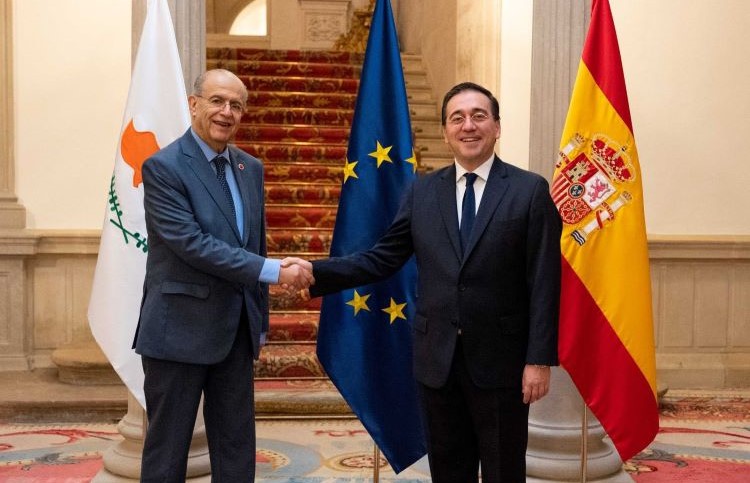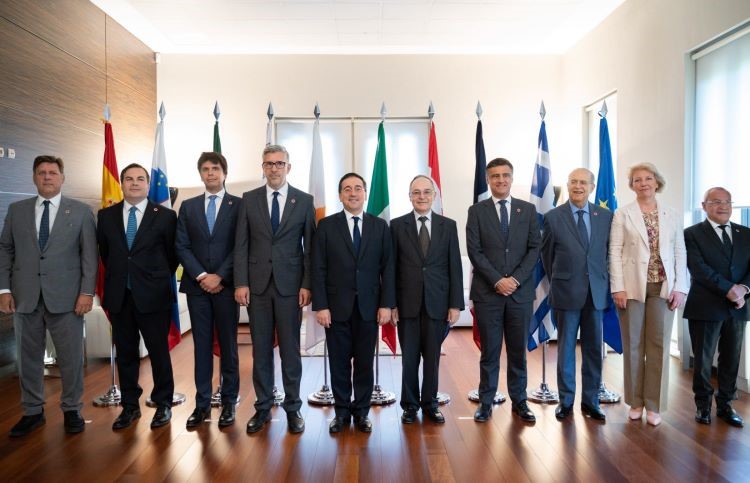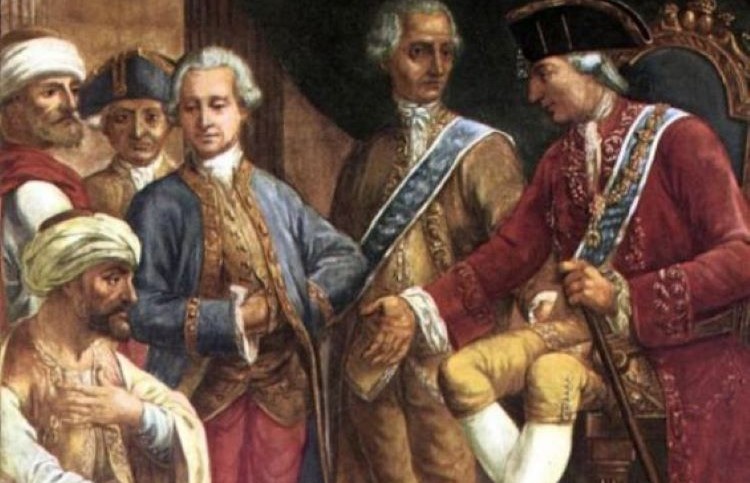The Diplomat
The Spanish and Cypriot Foreign Ministers, José Manuel Albares and Ioannis Kasoulides, discussed yesterday in Madrid the historical dispute of Cyprus with Turkey, as well as the consequences of the Russian invasion in Ukraine and the preparations for the Spanish Presidency of the EU Council in 2023.
Albares received Ioannis Kasoulides at the ministerial headquarters of the Palacio de Viana. This is the first bilateral meeting between the two since the Cypriot minister took office last January, replacing Nikos Christodoulides.
Kasoulides was in Spain yesterday to take part in the European Affairs ministerial meeting of the Med9 Group, held at the headquarters of Casa Árabe in Madrid, inaugurated by Albares himself and which dealt with the preparation of the next Med9 Summit, to be held next September in Alicante. The Med9 Group was created in 2013 in Brussels at the initiative of Spain and Cyprus and brings together Cyprus, Croatia, Slovenia, France, Greece, Italy, Malta, Portugal and Spain, that is, the nine EU countries integrated in the Mediterranean culture. After his stay in Madrid, Kasoulides traveled yesterday to London.
“Positive meeting with Cypriot Minister Ioannis Kasoulides,” Albares declared through his official Twitter account. “We discussed our bilateral relations, the Southern Neighborhood, the consequences of the war in Ukraine and the Spanish Presidency EU 2023,” he continued. “Cyprus is an important partner in Europe and in the Mediterranean,” he added.
For its part, the Cypriot Ministry of Foreign Affairs reported in a press release that the two ministers had discussed, during a working breakfast, bilateral relations and “ways to further strengthen them in a wide range of areas”, as well as the so-called “Cyprus question”, the “complications of the war in Ukraine after the Russian invasion” and other European issues of common interest. During the meeting, the Spanish Minister informed about the preparations for the Spanish Presidency, which will take place in the second half of 2023.
The so-called “Cyprus question” dates back to 1974. The country has been divided since that year between a self-proclaimed Turkish Republic of Northern Cyprus, recognized only by Ankara, and the Republic of Cyprus, a majority Greek-Cypriot entity, with its capital in Nicosia, which is internationally recognized and is even a member state of the EU.
Albares went to Cyprus last December, in the framework of a tour that included Greece and whose main objective was to defuse the unease generated in both countries by the last bilateral summit between Spain and Turkey, in the course of which the Turkish president, Recep Tayip Erdogan, assured that his country was interested in acquiring Spanish military material. During his visit to Nicosia, Albares and his then counterpart, Nikos Christodoulides, defended bilateral cooperation and coordination “especially on issues of mutual interest on the European agenda, such as EU relations with third countries, including Turkey”.
A week earlier, Prime Minister Pedro Sánchez and Cyprus President Nikos Anastasiadis signed a joint communiqué in Madrid in which they defended “a peaceful, stable, secure and prosperous Mediterranean”, supported “the sovereignty and territorial integrity of the countries” and called for “a comprehensive and viable solution to the Cyprus question, based on a bicommunal and bizonal federation with political equality, as established by UN resolutions and in line with EU principles”.







